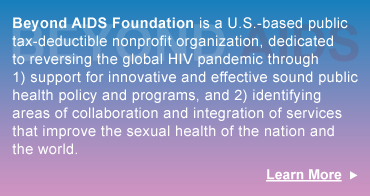Thursday, March 11, 1999
THE BAKERSFIELD CALIFORNIAN
EDITORIALS
Disease reporting needed
|
Attempts to make rational changes to the state's AIDS policy long sought by Kern County health officials are underway yet again. Despite growing support nationally and statewide for the changes,early assessments are the going will be tough, including among some San Joaquin Valley legislators. Why that should be so when lives are at stake speaks volumes for the ability of politics to cloud common sense. In California, cases of AIDS must be reported in confidence to local health authorities - and through them to the state and federal governments. This is for the same two reasons as any other serious communicable disease must be:
But a semantic quirk in state law is that the disease must only be reported in its late stage, even though the patient is infectious and most likely to be unknowingly passing the disease in its early stages, known as being HIV-positive. Sen. Ray Haynes, R-Riverside, is the latest legislator to introduce a bill, SB1029, to bring the state's reporting standard into compliance with that sought by the U.S. Centers for Disease Control and Prevention and a majority of states. His effort to require HIV reporting by patient name is but the latest since former Kern County Assemblyman Trice Harvey first tried more than a decade ago at the behest of the Health Department. Opposition to more reportability has been by large urban-area AIDS activists, ostensibly for fear of potential social, political and economic ostracization if patient names were revealed What risk? No public health agency in the state has ever leaked |
the name of an AIDS patient, so why would an HIV patient's name be revealed? More to the point is that large urban- area AIDS groups - still mostly led by middle-class, politically sophisticated activists - do not want to relinquish control over AIDS funding and policies, as they might have to if the patient base is broadened by including the names of people who are HIV-positive. And broadened it will be. As has long been predicted by epidemiologists, AIDS is spreading increasingly to women and hard-to-reach minority populations. To blunt justifiable criticism of unconscionable politicization of the process, last year AIDS activists introduced an HIV reporting bill with a loop- hole of black hole proportions: The name of the patient need not be reported. Such so called "crypto reporting" - identifying patient by number, not name - totally blunts the ability of public health workers to do contact tracing and partner notification while technically meeting a reporting standard. Then-Gov. Pete Wilson saw through the subterfuge and correctly vetoed the no-nane bill as worse than nothing at all. The present Haynes bill has a name reporting requirement, which is sure to draw opposition from traditional AIDS activists. They should not be heeded: Too many people - not to mention the public - who can and should be helped will not be if public health officials cannot know their names. Many Valley legislators are dependent on the political largesse of Bay area legislators and are reluctant to buck them. They should, though, given that early intervention can vastly increase patients' life spans and quality of life. Ventura physician and UCLA professor of medicine, Dr. Cary Savitch, characterized the frustratingly slow progress toward HIV name reporting, "We are climbing a mountain - on roller skates.." Haynes' attempt to get rid of the roller skates is in everyone's interest. |
|
![]() Return to Archived Articles and Letters
Return to Archived Articles and Letters

